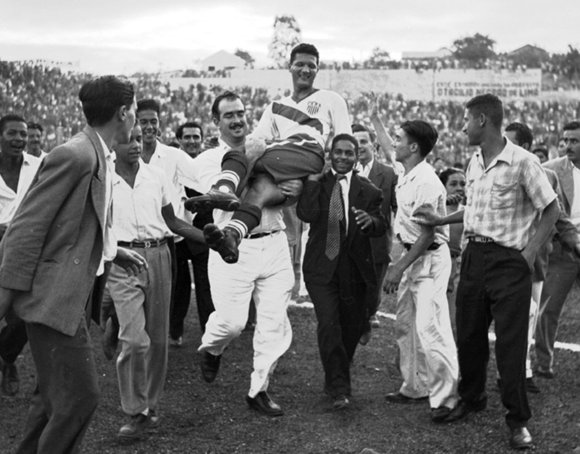 |
 |
 |
 |
| Sports News This Month |
 |
 |
 |
 |
| Posted June 11, 2010 |
|
|
|
By Way of Joe Gaetjens, Haiti Unreservedly Assists U.S. Soccer |
|
|
|
|
 |
|
|
AP FILE PHOTO |
|
| U.S. player Joe Gaetjens scored the goal that beat England 1-0 in a World Cup soccer match. |
|
By LAURENT DUBOIS |
| ______________________________________________________ |
| Wehaitians.com, the scholarly journal of democracy and human rights |
| More from wehaitians.com |